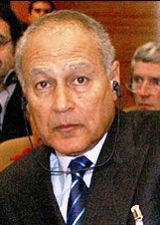Egypt says sanctions are not successful in conflict resolution
May 29, 2007 (CAIRO) — Egyptian Foreign Minister Ahmed Abul Gheit on Tuesday said sanctions had never been successful in solving problems and can’t solve Sudan’s Darfur issue, the official news agency MENA reported.

There must be a political process, Abul Gheit said, citing efforts being exerted by Sudan, the UN and the African Union (AU)over the Darfur issue.
Currently, the Darfur issue centered on a message sent by UN Secretary General Ban Ki-moon and AU Commission Chairman Alpha Oumar Konare to Sudanese President Omer al-Bashir about Sudan’s view on deploying a UN-AU “hybrid” force in Darfur, Abul Gheit said.
There was a report being discussed by the UN Security Council about the “hybrid” force and its mandate, Abul Gheit added.
Bush announced earlier on Tuesday that the U.S. Treasury Department would step up efforts to squeeze the Sudanese economy by targeting government-run ventures involved with its booming oil business, which does many of its transactions in U.S. dollars.
Bush also announced sanctions against two senior Sudanese officials and a rebel leader, who were suspected of being involved in the violence in Darfur.
Washington will also seek new UN Security Council sanctions against Khartoum, as well as a provision preventing the Sudanese government from conducting military flights in Darfur, Bush said.
In response, the Sudanese government expressed its surprise over U.S. decision to expand sanctions. “The U.S. surprised us by imposing sanctions on Sudan at a time that the situation in Darfur is improving,” Sudanese Presidential Adviser Majzoub al-Khalifa told reporters.
Khartoum was under mounting pressures to approve the deployment of UN peacekeepers in Darfur. It has accepted the first two phases of a UN peacekeeping plan for Darfur but stalled the third phase of the plan to create a much larger UN-AU hybrid force.
The third package, which is also called “the hybrid operation,” is the final step of a UN-AU plan of deploying their joint peacekeeping force in Darfur.
The plan was worked out by the UN, the AU and the Sudanese government during an expanded high-level meeting in the Ethiopian capital Addis Ababa on Nov. 16 last year, but its details should be defined step by step by the three parties.
The main suspending point of the third package is the hybrid force’s command, which Khartoum said must remain in the AU’s hand while most western observers doubt the UN’s willingness to finance a peacekeeping force not controlled by itself.
(Xinhua)
